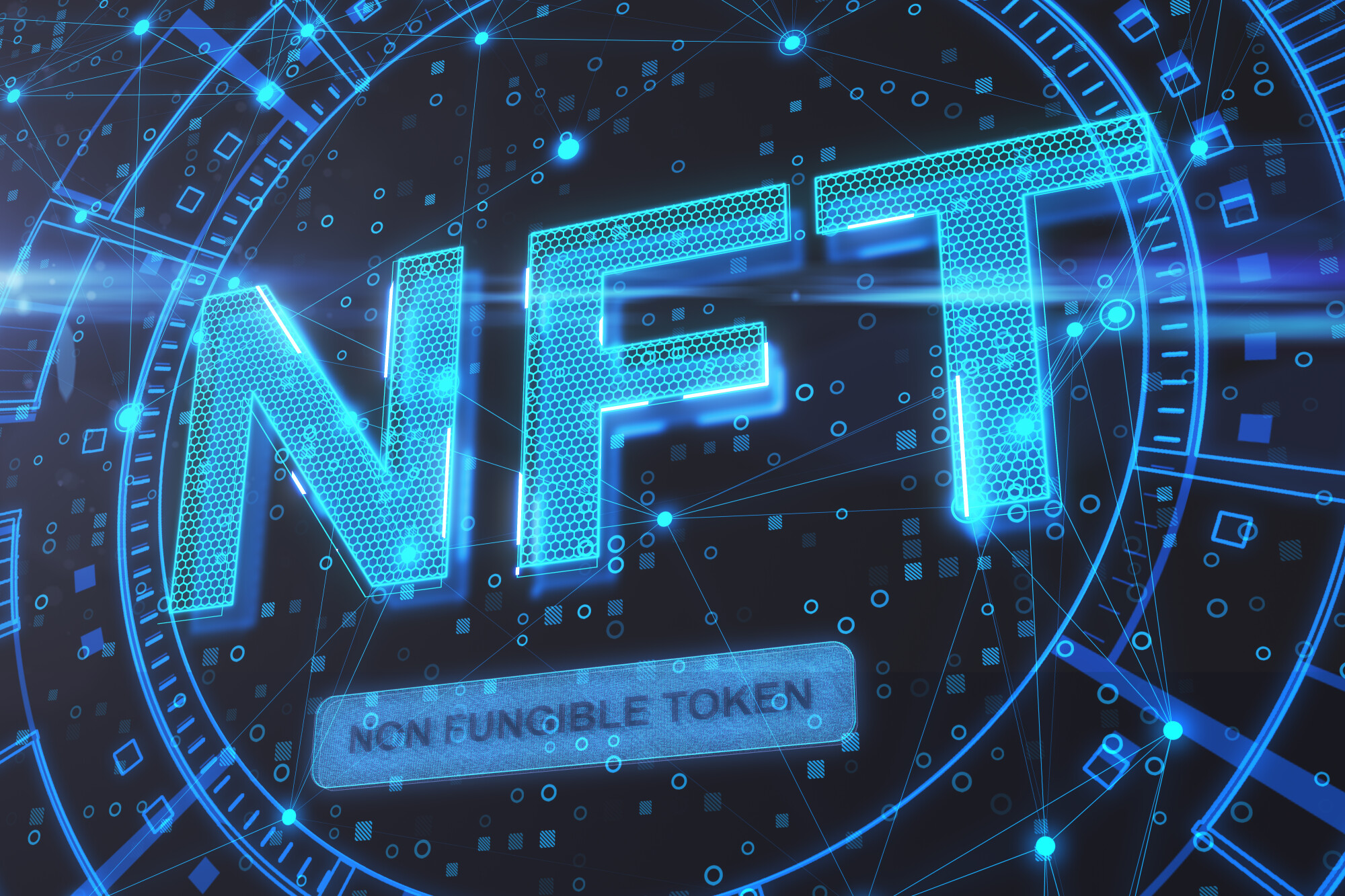Projections show that the global NFT market will reach a value of $5.093 billion by 2028.
Despite being a very new technology, NFTs have taken the world by storm. With that being said, most people still know very little about the world of NFTs, including what they are, how to buy them, and where to store them.
If you want to invest in NFTs, you’ll need to set up an NFT wallet to keep them in. There are plenty to choose from, and in this guide, we’ll discuss some of those options, so you can decide on the best NFT wallet for you.
To find out more, keep reading.
What Are NFTs?
An NFT is a non-fungible token. This is a digital asset that you can buy, sell, and trade using blockchain technology. “Non-fungible” means that can’t be replicated or reproduced in any way, so each one is unique.
An NFT acts like a digital certificate of ownership for whatever the asset is. Currently, the most well-known NFTs are digital images, but they can come in various formats such as video, audio, or any other collectable items. While they’re popular amongst artists and businesses, anyone can design and create NFTs.
As NFTs are traded through the blockchain, all transactions are recorded. These can’t be altered in any way, which allows people to verify ownership of specific NFTs. They work somewhat like cryptocurrencies as they’re on different blockchains such as Ethereum and Solana.
While digital art is currently the most popular type of NFT, various companies are moving into the space. There are currently brands in industries such as fashion, music, gaming, and more that are developing NFTs.
What Is an NFT Wallet?
Anyone can buy an NFT, but it’s a process that needs to be properly understood first. One of the most crucial things to do first is to set up an NFT wallet, as this is where you’ll keep NFTs (and other digital assets) when you buy them.
Different NFTs are built on different blockchain protocols. An NFT wallet is a cryptocurrency wallet that supports one of these blockchains.
The most popular blockchain for NFTs is Ethereum (ETH), but several others are becoming increasingly popular, such as:
- Solana (SOL)
- WAX
- Binance Smart Chain (BNB)
- Avalanche (AVAX)
- Algorand (ALGO)
As the technology grows, more blockchain protocols are developing NFT support. When you set up an NFT wallet you’ll also be able to hold the relevant cryptocurrency in this wallet.
Why NFT Wallets Are Important
One of the main things that many people don’t realise about cryptocurrency wallets is that they don’t actually hold the digital assets themselves. All NFTs and cryptocurrencies are stored on the blockchain, and they never leave. Your crypto wallet instead stores your private keys, and these are what allow you to access your assets.
By owning a private key, you own whatever assets are tied to this address. You can then authorize any transactions related to these assets, which is what allows you to sell or transfer them.
What Features to Look For in an NFT Wallet
There are many types of NFT wallets, each with different features and capabilities. To decide what one to use, you should look at a range of factors.
Compatibility
One of the first things you want to look at is the blockchains and NFT marketplaces supported. If you already have specific NFTs in mind that you want to buy, you’ll need to set up a wallet that will actually allow you to buy them.
For example, the largest NFT marketplace is OpenSea. If you wanted to buy an NFT on OpenSea that’s on the Ethereum blockchain, one of the most popular wallet choices is MetaMask. OpenSea also supports Phantom, another popular wallet, but this wouldn’t be ideal as Phantom is on the Solana Blockchain, not Ethereum.
Security
One of the biggest concerns with blockchain technology is security. Even though most of the large wallets are very secure, scammers are constantly working to find ways to steal people’s crypto and NFTs. Because of this, you want to make security a priority when looking at different wallets.
As you get more involved in the space and gain more assets, this will become more important. Losing an NFT that cost you a few dollars may not be a huge issue, but some are now worth hundreds of thousands of dollars. Losing an NFT like this would be devastating for anyone.
User Friendliness
Crypto, NFTs, blockchains – it can all be very complicated, especially when you’re first getting started.
Some wallets are aimed at beginners, while others are designed for more advanced users. You’re better off getting started with a wallet that’s easy to understand and use so you can start buying NFTs without any issues.
Cross-Device Use
While it’s not absolutely necessary, many wallets offer added convenience by having platforms that work across multiple devices. This means you can use your wallet when at a computer, as well as on your smartphone. You may then be able to make some good purchases while on the go, without having to worry about where you are.
Multichain Support
Ethereum remains the most popular blockchain for NFTs, but others are growing fast. Some wallets support multiple blockchains. Using one of these means you can buy NFTs from these various chains, and keep them conveniently stored in the same wallet.
The Best NFT Wallets on the Market
There are a lot of NFT wallet options available. This list details some of the best choices along with the features that make them useful.
MetaMask – Best for Security
MetaMask is one of the most popular NFT wallets available and is a common choice for people’s first wallet. It supports the Ethereum blockchain, and you can add various other blockchains to it if need be.
You can use MetaMask as a browser extension and it has an app available on Android and iOS. It’s fairly easy to set up and use, making it ideal for beginners.
One of the biggest appeals of MetaMask is its security. You’ll set up a password when creating it, and it will give you a 12-word seed phrase so that you can recover your keys if need be. This seed phrase, your keys, and your password are all encrypted to provide additional security.
Trust Wallet – Best for Flexibility
While some wallets are quite easy to use, Trust Wallet makes this a priority. It has an appealing interface that’s easy to navigate, so you won’t have any trouble figuring out how to use it. Trust Wallet is fully open source, and is completely decentralized, making it very flexible.
Some other wallets are fairly limited in terms of their blockchain support, but that’s far from the case here. It supports 53 blockchains and more than a million crypto assets.
It also has a specific section for NFTs, making them easy to view. In this section, you can view details of each NFT such as descriptions and properties. The developers conduct regular audits to ensure Trust Wallet remains safe for users.
Coinbase Wallet – Best for Wallet Compatibility
Coinbase is one of the largest crypto exchanges in the world, and its wallet is equally impressive. Something that makes it stand out from others is that it’s part of a social marketplace. This means that you can purchase Coinbase NFTs, and transfer them to other Ethereum-based wallets such as MetaMask.
Coinbase Wallet has impressive security measures, including cloud backup and recovery. It also allows you to make transfers using usernames rather than public wallet addresses. Addresses are generally a string of random letters and numbers, making them essentially impossible to memorize, so this adds another level of convenience.
One downside is that Coinbase Wallet is known to not have the best customer support, so you might have some difficulty getting help if you need it. Transaction fees also tend to fluctuate more than most other wallets.
ZenGo – Best for Customer Service
With ZenGo, you can buy crypto and NFTs directly through the wallet. It supports a range of cryptocurrencies, and you can easily monitor your portfolio. It’s easy to set up and doesn’t use a seed phrase, so that’s one less thing you have to worry about.
The developers of ZenGo have implemented various security measures to keep your assets safe. This includes things like:
- 3D biometric encryption
- 3-factor authentication
- ClearSign firewall
- MPC Encryption
Even simple-to-use wallets can be complicated for people who are new to crypto and NFTs. With ZenGo, you can contact their support team via live chat 24/7. Being able to get this assistance can be very helpful when you’re confused and will stop you from making any mistakes.
Exodus – Best for Ease of Use
One of the main benefits of Exodus is how easy it is to use. The developers have specifically designed it so that beginners will be able to use it without trouble. The interface is sleek yet simple, so it looks good and it’s easy for people to navigate.
It has a dedicated NFT gallery, and it’s easy to transfer NFTs to and from here. Exodus is compatible with both Ethereum and Solana NFTs, which are the two biggest NFT blockchains around. It also supports more than 230 other cryptocurrencies, and you can buy these directly with fiat currencies like USD and GBP.
Exodus has both desktop and mobile versions, with portfolio tracking features. They also offer 24/7 support which is ideal if you do run into any issues.
Crypto.com DeFi Wallet – Best All Rounder
Almost everyone who has been in the world of crypto for a while has heard of Crypto.com. It’s one of the largest exchanges available, and their wallet is one of the best.
It features a dedicated NFT section which is designed to look like an actual gallery. This makes it one of the best-looking choices, and you can select “featured” NFTs, which will display at the top of your collection. You can store both Crrypto.org chain NFTs, as well as ETH-based NFTs.
It’s easy to receive and send NFTs, and you can share them on social media pages directly from the app. The wallet also allows you to earn on the crypto you’re holding.
Hard Wallets
Hard wallets are somewhat different. They’re physical devices that hold your private keys, rather than browser extensions or mobile apps. These are generally considered more secure than other wallets, so many people prefer them.
The main downside of hard wallets is that if you want one you’ll have to pay for it. Soft wallets are generally free, which is why they’re typically a much better place to start.
Once you start to build up a larger portfolio, you may want to consider getting a hard wallet to keep your assets more secure. Some of the most popular brands for hard wallets include:
- Ledger
- Trezor
- SecuX
- SafePal
- D’CENT
If you do decide to invest in a hard wallet, you’ll want to think about similar factors such as compatibility, ease of use, security, etc. When using a hard wallet, you’ll need to connect it to a device such as a laptop any time you want to use it. Because of this, many people use hard and soft wallets together – a hard wallet to store assets long-term and a soft wallet for faster trades.
The Best NFT Wallet for You
Do you want a wallet that’s easy to use? Do you want to be able to use a range of cryptocurrencies? Is security the most important factor?
With so many choices available, it’s hard to say what the best NFT wallet is. When deciding, you need to think about what features are important to you. Consider the different elements, and you’ll be able to make a better decision to meet your needs.
Like in many places, crypto and NFTs are quickly growing in popularity in Dubai. If you’re planning on opening a business there, an understanding of this new technology could give you an edge over your competitors.
At Virtuzone, we specialise in helping people set up businesses in the UAE. For more info on starting your business, click here to set up a consultation with one of our specialists today.









